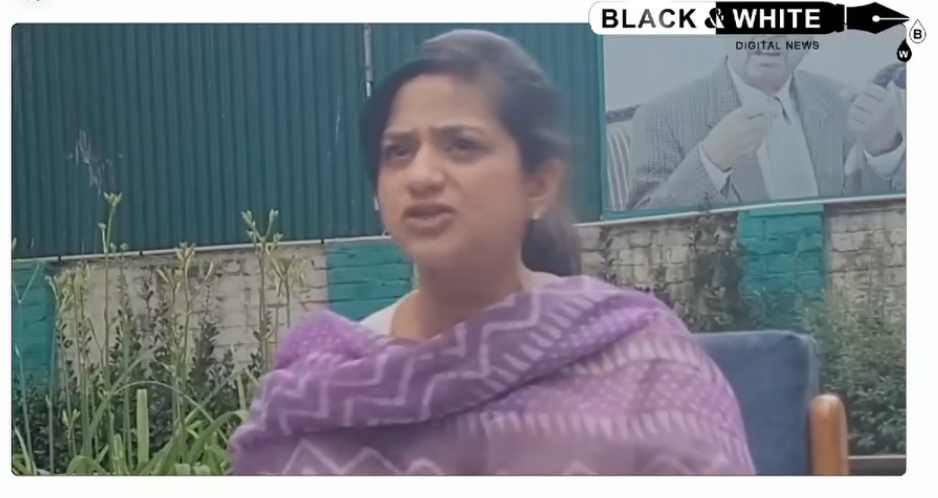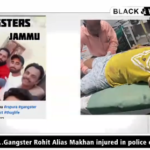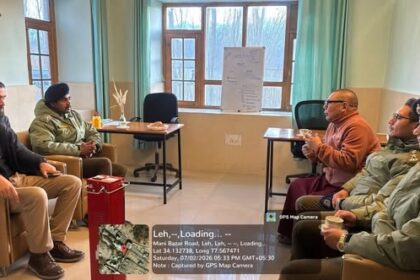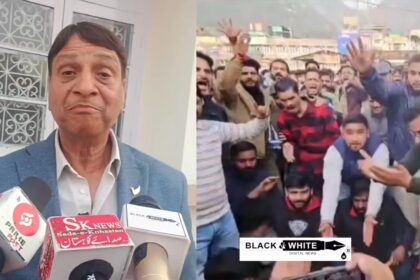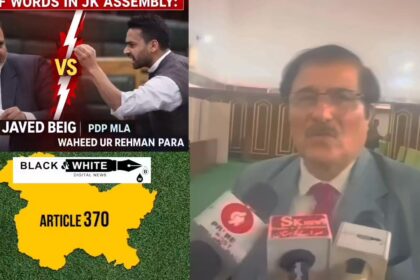Iltija Mufti labelled the registration of an FIR as a tactic of “intimidation,”
||Black and White Digital News||
||Parvinder Singh May 30, 2024||
In a dramatic turn of events, former chief minister and Peoples Democratic Party (PDP) President Mehbooba Mufti finds herself at the center of a political storm as election authorities file a First Information Report (FIR) against her for allegedly violating the Model Code of Conduct (MCC). The incident, which has captured the attention of the entire region, unfolded during a heated protest led by Mufti and her supporters in Bijbehara, South Kashmir, while polling was underway for the Anantnag-Rajouri Parliamentary seat during the sixth phase of the Lok Sabha elections.
According to official sources, the protest was ignited by the alleged detention of PDP workers and polling agents, leading Mufti and a large contingent of her party members to stage a sit-in outside the Anantnag Police Station. The demonstration, described by authorities as a “gross violation” of the MCC and Section 144 of the Criminal Procedure Code (CrPC), resulted in the main road in Bijbehara being blocked for over an hour.
The protest’s timing and location, coinciding with the election period, led to heightened tensions. Section 144 CrPC, which prohibits unlawful assembly and processions to maintain public order, had been imposed from 6 pm on May 23 to 6 pm on May 25. Officials condemned the protest, asserting that it disrupted the peace and violated the stringent prohibitory orders put in place to ensure a smooth electoral process.
In response to the FIR, Mehbooba Mufti took to X, the social media platform, to voice her defiance. “Amusing to find an FIR filed against me for apparently flouting MCC. This is the price PDP has paid for speaking truth to power,” she posted, accusing the Centre and local administration of orchestrating a campaign to undermine her party’s electoral prospects. Mufti alleged that the authorities conducted Cordon and Search Operations (CASO) in PDP strongholds, a tactic she claimed was designed to intimidate voters and suppress their turnout.
The confrontation between Mufti and the administration has ignited a broader debate about democratic freedoms and electoral integrity. Mufti framed her protest as a necessary and legitimate response to what she perceives as undemocratic actions by the authorities, describing the situation as “the pot calling the kettle black.” She argued that her actions were a defense of democratic principles in the face of systematic efforts to stifle her party’s voice.
An FIR has been registered against Mehbooba Mufti for MCC (model code of conduct) violation. This is intimidation and we are not going to take it lying down. We will not kneel. We are here to speak the truth,”Iltija, serving as the PDP’s media adviser, told reporters.
According to Iltija, the protest was meant to highlight the detention of PDP workers and election agents, rather than to create a scene. “When a former Chief Minister has to hit the streets, what does it say about democracy?” she questioned.
The protest in Bijbehara has not only highlighted the contentious political climate in South Kashmir but also underscored the challenges faced by political leaders and parties in navigating the complex landscape of electoral politics under stringent regulatory frameworks. The FIR against Mufti is seen by her supporters as a calculated move to discredit her leadership and demoralize her base ahead of crucial elections.
As the news of the FIR and the protest spreads, it raises critical questions about the balance between maintaining public order and upholding democratic rights. The situation in Anantnag serves as a microcosm of the larger tensions at play in the region, where political maneuvering and administrative actions often intersect in complex and sometimes contentious ways.
Observers note that the coming days will be crucial in determining the trajectory of this political battle. Will the authorities’ actions galvanize further support for Mufti, or will they succeed in curtailing her influence? How will the electorate respond to these developments? These are the questions that loom large as the story continues to unfold.
In conclusion, the FIR against Mehbooba Mufti marks a significant episode in the ongoing political saga of South Kashmir, reflecting the intense and often fraught nature of democratic processes in the region. As events progress, the reverberations of this incident are likely to be felt far beyond the streets of Bijbehara, shaping the future of political discourse and action in Jammu and Kashmir.
Leave a comment
You Might Also Like
SSP Leh Along with District Officials Visit De-Addiction Centre Leh, Encourage Patients Towards Recovery and Rehabilitation
SSP Leh Along with District Officials Visit De-Addiction Centre Leh, Encourage Patients Towards Recovery and Rehabilitation Leh, Feb 9: Today,…
1 Min Read
Katra Roop Way Bun Kar Rehega MLA Katra Baldev Raj Sharma Ka Bayan Me Jeeta He Isi Promise Pe Hu
Katra Roop Way Bun Kar Rehega MLA Katra Baldev Raj Sharma Ka Bayan Me Jeeta He Isi Promise Pe Hu…
0 Min Read
PDP Na BJP K Sath Alliance Na Kiya Hota Aaj Article 370 Bhi Hota Aur J&K Ki Halat Bhi Behtar Hoti Nc Senior Leader Mubarak Gul
PDP Na BJP K Sath Alliance Na Kiya Hota Aaj Article 370 Bhi Hota Aur J&K Ki Halat Bhi Behtar…
0 Min Read
Implementation of Rural Development Schemes Concludes at Leh
Implementation of Rural Development Schemes Concludes at Leh Leh, February 07, 2026: The three-day State-Level Training Programme on Effective Implementation…
2 Min Read

